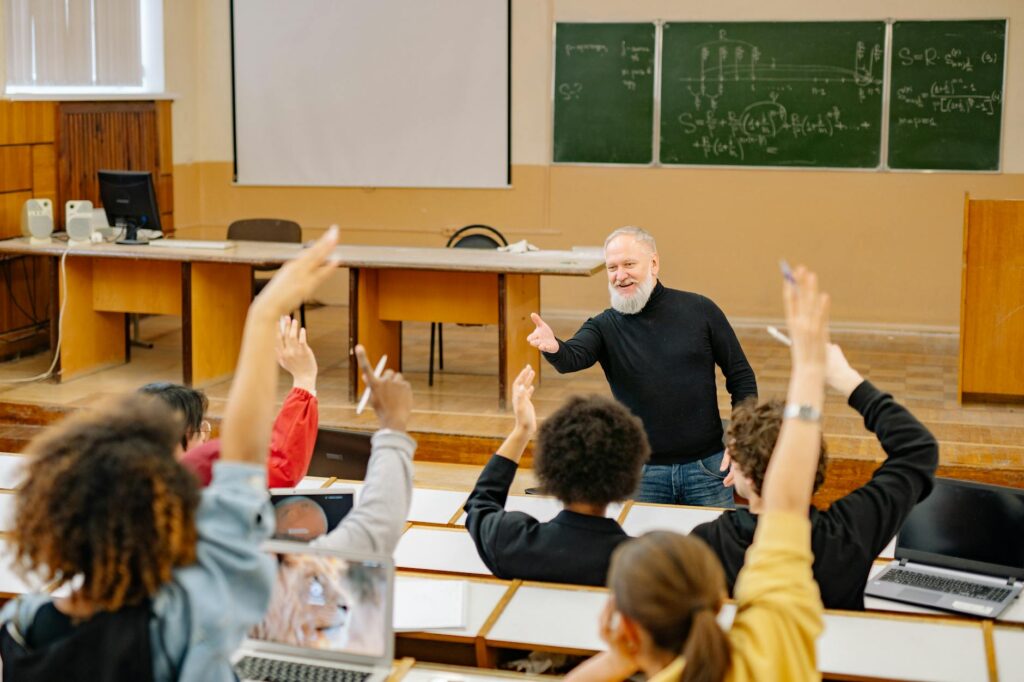Why Universal Design for Learning (UDL) is Important for Learners with Disabilities

Universal Design for Learning (UDL) is known as an educational framework and approach to assist all students with equal opportunities to learn by designing fair and accessible curriculum. The main goal of UDL is to remove barriers and offer an inclusive learning environment for learners, including those with diverse abilities, backgrounds, and learning styles (Priyadharsini […]
How Can Cognitive Load Theory Improve Teaching?

Learning can be exciting, overwhelming, or confusing. When we are exposed to a new concept or skill, our brain has to process a significant amount of information. So, it is crucial to understand, particularly for educators, how different learners experience the overall learning process. Why learning can be difficult in some contexts can be explained […]
Why Patients Need Medical Literacy for Equity

In the past, medicine operated like a one-way street. Doctors and scientists were the experts, and patients were the recipients—expected to listen, follow, and trust without question. But the landscape of health knowledge is shifting. In an age of open-access information, online learning, and patient-led research, medical literacy has become a key tool for equity—empowering […]
Medicine is for All Minds

Medicine is often imagined as the territory of doctors in white coats, laboratories, and hospital wards. But in truth, medicine is a human project that extends far beyond the walls of clinics and lecture halls. The health challenges we face—chronic diseases, pandemics, inequities in access to care, environment-related illnesses, cannot be solved by one profession […]
Sensemaking in Medical & Health Education Makes So Much Sense

In today’s complex health and medical landscape, facts alone are not enough. Medical professionals, patients, educators, and researchers are constantly surrounded by streams of data, specialized language, and rapidly evolving scientific knowledge. The challenge is not only accessing information but also making sense of it. This is where sensemaking becomes essential. What is Sensemaking? Sensemaking […]
What is Applied Medical Literacy?

Medical literacy is the ability to use medical language—such as terminology, concepts, and classifications—and to analyze, evaluate, and apply medical information. It goes beyond simply recognizing terms on a chart or repeating what a doctor says. True medical literacy involves interpreting health information in context, asking meaningful questions, comparing sources, and making informed decisions. Applied […]
Clinical Reasoning in Grade Three with A-to-Z Medical History and Histology Lessons

In medicine, diagnosis is like solving a mystery—every clue matters. Doctors rely on clinical reasoning to piece together information from a patient’s medical history, physical symptoms, and even microscopic anatomy (histology) to understand what’s going on in the body. Now imagine giving children the chance to understand that same kind of reasoning skill in Grade […]
If Dog Man Can Teach Kids About Surgery, So Can You

Children are natural question-askers—especially when something is surprising, unfamiliar, or just plain weird. And if you’ve watched the Dog Man movie with a child lately, you may have heard a flurry of questions before the opening scene even finishes: These are big, curious, and important questions. At its core, the origin story of Dog Man—where […]
Building Differential Diagnoses in Kindergarten with A-to-Z Medical Literacy

In medical school, students learn early on that symptoms—especially ones as common as rashes—can have a wide range of causes. One essential skill for clinicians is building differential diagnoses: lists of possible explanations for a patient’s symptoms. Doctors are trained to think broadly, using memory aids like the VITAMIN CDE and VASCULITIS mnemonics to ensure […]
Improving Inclusivity in Medical Learning Environments

There are many psychological, social, and instructional factors that influence inclusivity in medical learning environments. Implementing specific and actionable strategies would support students and improve learning, engagement, and inclusivity. Psychological Two significant psychological factors are 1) deficit thinking and 2) drink-from-the-firehose curriculum and teaching. Deficit thinking shows up as language like “don’t waste a spot” […]

